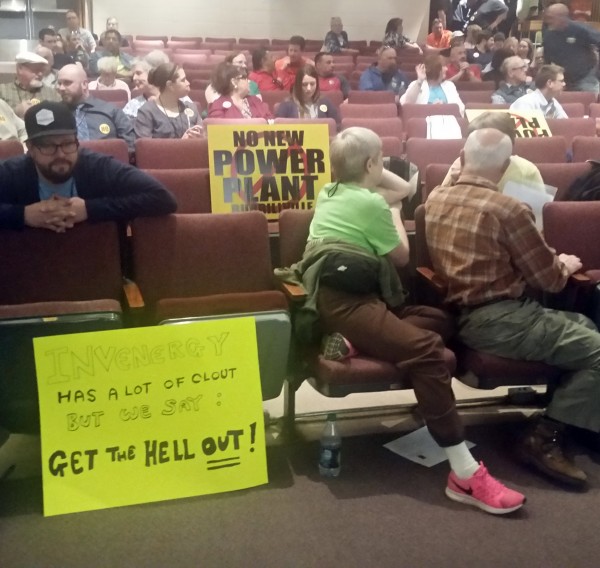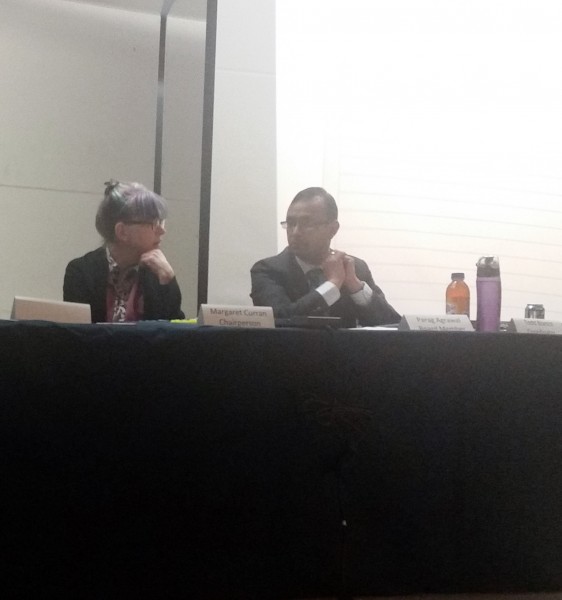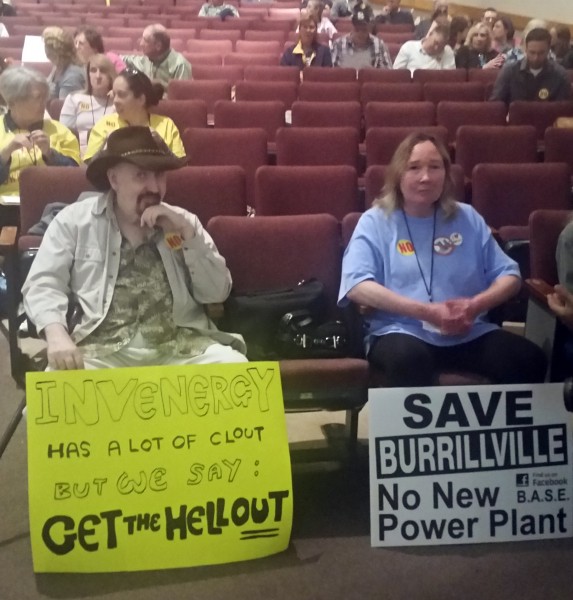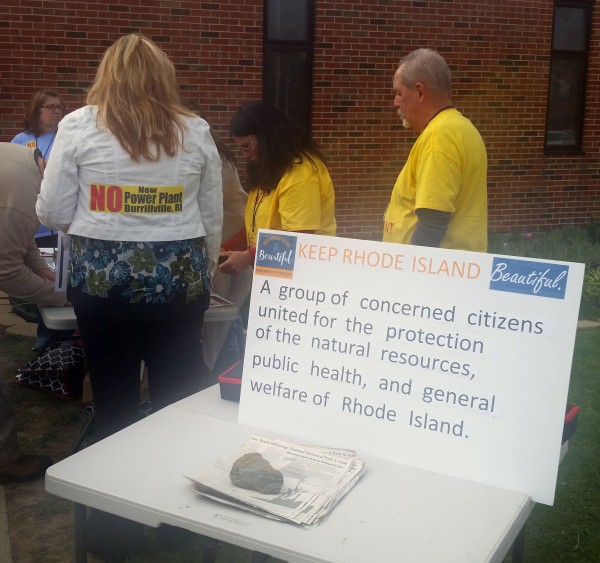 By the end of the nearly four hours of testimony before the Energy Facilities Siting Board (EFSB) concerning Invenergy‘s proposed fracked gas and diesel oil burning power plant in Burrillville on Tuesday night, 41 people had spoken. Six people spoke in favor of the plant, mostly union laborers hoping for jobs. One person gave testimony that was difficult to follow, so I’m not sure if he supported or opposed the plant, and one man spoke twice. Thirty four people, mostly Burrillville residents, spoke against the plant, often emotionally but just as often with hard facts.
By the end of the nearly four hours of testimony before the Energy Facilities Siting Board (EFSB) concerning Invenergy‘s proposed fracked gas and diesel oil burning power plant in Burrillville on Tuesday night, 41 people had spoken. Six people spoke in favor of the plant, mostly union laborers hoping for jobs. One person gave testimony that was difficult to follow, so I’m not sure if he supported or opposed the plant, and one man spoke twice. Thirty four people, mostly Burrillville residents, spoke against the plant, often emotionally but just as often with hard facts.
The hearing was actually a continuation of the first public comment meeting, held March 30. That hearing was better attended by both the residents of Burrillville and the union, but it’s possible attendance was down due to a misleading advertisement place in the Bargain Buyer by Invenergy. The meeting was better run this time. EFSB Chairperson Margaret Curran set out the rules and the timing early, and for the most part the process went smoothly, though sometimes things became heated between residents and the laborers. There were many police officers on duty, both state and local. At one point I counted nine.
The hearing also acted as our introduction to this ongoing drama’s latest cast member, Parag Agrawal, the new Associate Director at the RI Division of Planning. For the first time the EFSB functioned with a full board. The third member is Janet Coit, Director of RI’s Department of Environmental Management.
Below find all the testimony, in order.
Ten year old Briella Bailey got the evening off to a good start when she spoke the the Energy Facilities Siting Board (EFSB). Bailey went over her allotted five minutes, and her testimony played well with those in attendance, so it would have been a bad move for Curran to cut her off. Besides, Bailey wasn’t the last person to go over time.
Amanda Mainville gave very cool testimony, comparing Invenergy’s Director of Development John Niland to the villain of the Dr. Suess classic, The Lorax. It was the first of two Dr. Suess references of the night.
Paul MacDonald, Burrillville resident and President of the Providence Central Federated Council and Legislative Director of Teamsters Local 251 spoke in favor of the power plant. His testimony was more nuanced than that given by union members and leaders at the last hearing. In a nod towards the concerns of environmentalists, MacDonald maintained that, “If the environment cannot support it, I’m against it.”
Part of Invenergy’s plan is to use well water contaminated by MTBE to cool the turbines. Burrillville’s legacy with this dangerous gasoline additive is painfully explored in the testimony given below. The people of Burrillville have already suffered through one toxic nightmare. They are loathe to invite another into their lives.
More incredible and brave testimony from Donna Woods. Her personal story is extrememely powerful…
Linda Nichols is considering a run for office. Her testimony might just be her first step towards getting elected.











 At Tuesday night’s Energy Facilities Siting Board Meeting (EFSB), with Invenergy‘s Director of Development John Niland in attendance, angry residents accused the company of running a deliberately deceptive ad in the Bargain Buyer regarding the timing and location of the meeting.
At Tuesday night’s Energy Facilities Siting Board Meeting (EFSB), with Invenergy‘s Director of Development John Niland in attendance, angry residents accused the company of running a deliberately deceptive ad in the Bargain Buyer regarding the timing and location of the meeting.
